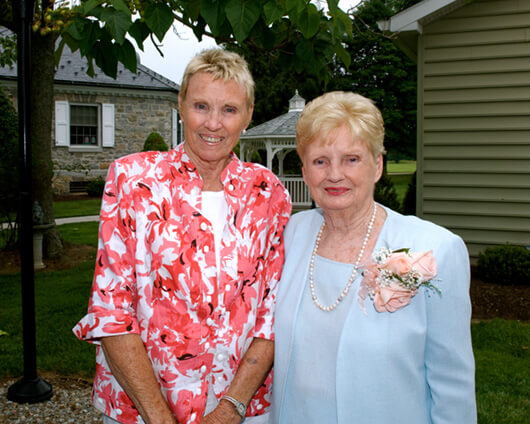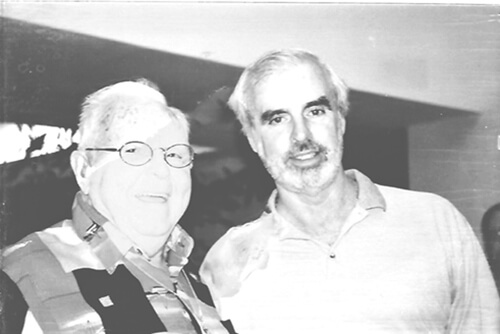All living beings and life forms are created from the same 6 basic elements: carbon, hydrogen, phosphorus, oxygen, nitrogen, and sulfur. These elements entwine and connect people to nature and to each other. Author Johan Hari, states, “The opposite of addiction is connection.” Thus came to life, Nature WoRx, a nature based therapy program that immerses people in their environment to promote connectedness and healing from substance use disorders.
Nature WoRx is an experiential outdoor program that utilizes meditations, mindfulness, and forest bathing to develop a deeper connection to nature. Integrating different modalities into their program allows people to choose how they connect to people and a higher power.
At Ashley, we partner with Nature WoRx and utilize the beautiful environment around us with our Emerging Adult patients. Nature guides and supports patients to finding a grounded connection to their environment, and teaches them the skills to use beyond their stays at Ashley. It gives them the opportunity to connect with themselves, engage with all five senses, and form new thoughts about the world around them.
We are also planning to enhance the nature surrounding the Emerging Adult Extended Care house. The trail building project will allow the emerging adults to build a trail through the expansive acreage. The patients will leave a piece of themselves behind and pay forward what was given to them to the emerging adults who will follow.
Here is an example of an activity used in the Nature WoRx program:
Five Senses Meditation
- Sit in a comfortable spot that is as quiet & secluded from man-made noise as possible. This could be under a tree, in a meadow, on a boulder near a creek, or on a sandy beach.
- Get comfortable by gently shaking out your arms, rolling your neck, and shrugging your shoulders a few times. Close your eyes, take a deep, & slow breath through your nose for four seconds, hold your breath for a second, & then exhale deeply through your nose for five seconds. Repeat this for one minute, pulling positive healing energy into your body, & getting rid of negative energy & toxins.
- Move your attention from your breathing to the way your body feels. Feel the way the ground is solid under your feet & legs, the way the sun feels on your face, & the way the air feels on your skin. What do you notice?
- Move your attention to what you can hear. What is the most present, nearest sound? What is the most distant faintest sound? What do you notice? Focus on what you can smell. What are the dominant scents you can pick up using your nose? What are the slight, more subtle aromas you can detect?
- With your eyes still closed, pause for a moment, & imagine you are a visitor to Earth from another planet that is barren and dusty, devoid of life. You have just landed, & you have never been here before. When you are ready, open your eyes, and behold your surroundings as if you are seeing Earth for the very first time. What do you notice?
Bridging the Gap
Continuing Higher Education
Many young adults choose to go directly into the workforce after high school and opt out of getting a college degree. According to MarketWatch.com, nine out of 10 jobs created in the last year go to those with a college degree. Employers are now requiring more of a well trained workforce to service their clients. In 2016, there was an average of 70 percent of students who enrolled in college immediately after graduating, but many failed to complete their degree. With the necessity of obtaining a degree to gain employment why are more students opting out of receiving a college education?
For starters, students who suffer from substance use disorder and other mental health issues often fail to maintain their grades because their addiction becomes a barrier to school and other priorities. Students often withdraw from school to seek lifesaving treatment and their recovery becomes the most important and prominent factor in their lives. However, once stabilized, students are able to focus on their goals and resume their academic career.
At Ashley, we work to bridge the long-standing educational attainment gaps among our patients and assess their motivations and goals following their stay. We determine if they have had experience with college or previously obtained a GED. Once we assess their goals and prior experiences, we then work to find an aftercare program that will closely align with their future plans. We are fortunate to partner with various providers who offer re-entry paths for patients to complete schooling as well as those who offer sober living options for college students. Recently, here in Maryland, a law was passed covering tuition up to $5,000 for students who enroll in one of Maryland’s community college within two years of finishing high school or obtaining a GED.
Not only does Ashley support patients and their desire to start or resume their academic career, but also offers internships and learning opportunities to students from Harford Community College. We provide the resources for students to gain experience in counseling and the substance use disorder treatment field. This allows Ashley to participate in nurturing the talent of future generations who desire to enter the helping field.




